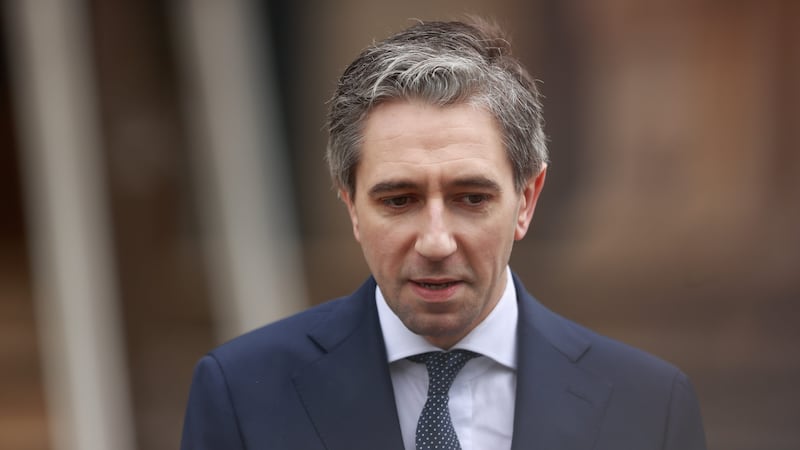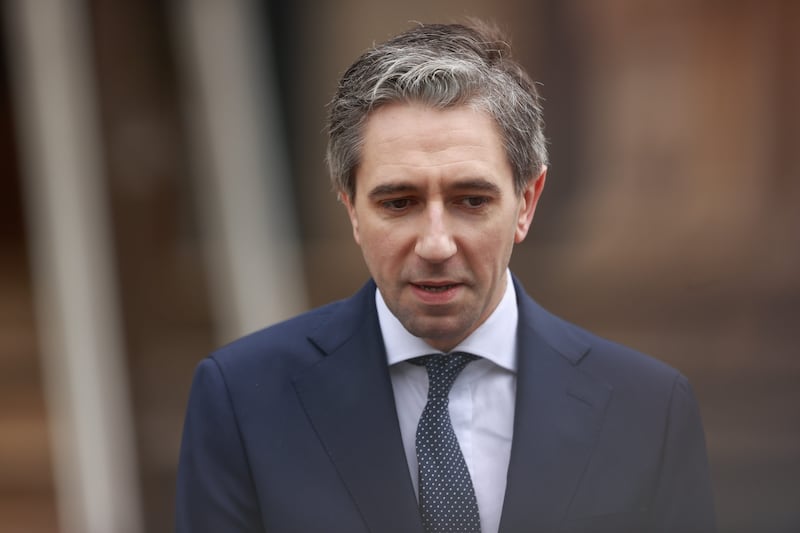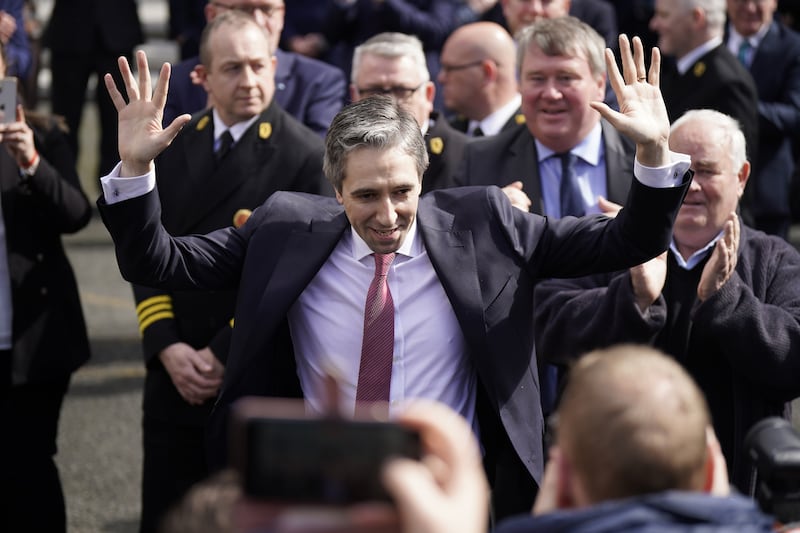Taoiseach Simon Harris has assured Stormont’s politicians that Ireland’s open border is “non negotiable”.
The Fine Gael leader also dismissed the notion that the Republic could sign up to the UK government’s controversial Rwanda scheme, describing reports on the matter as “more satire than news”.
Mr Harris’s first visit north as taoiseach on Friday came amid tensions between London and Dublin in the wake of Justice Minister Helen McEntee’s claim that 80% of those applying for asylum in the south crossed from the north amid fears that they would be deported to Rwanda.
Asked about reports in the Daily Telegraph which suggested the British government would invite the Republic to join its Rwanda deportation scheme, Mr Harris said: “Can I just say in relation to that issue of Ireland and Rwanda, that’s more satire than news and Ireland has its own policy in relation to migration.
“We’ve every right to have our own policy, and indeed will seek to advance migration policy through our membership to the European Union.”
His first engagement in Belfast was a meeting with First Minister Michelle O’Neill and Deputy First Minister Emma Little-Pengelly at Stormont Castle, before holding separate meetings with the leaders of Alliance, Ulster Unionists and SDLP.

The taoiseach praised the first ministers for what he termed their “incredible leadership” and told how he was eager to come north following the restoration of the institutions in February.
“I am very grateful to the first minister and deputy first minister for the incredible leadership they are showing in the political environment in terms of trying to deliver for people and I’m extraordinarily pleased the Irish government is in a position to work, where appropriate, on a range of issues,” he said.
“I think we have an impressive list of areas where we are now actively co-operating and collaborating in.”
Ms O’Neill there were many areas where there was an “opportunity for advancement”, particularly with the north-south ministerial bodies restored alongside the assembly.
“I am very glad he (the taoiseach) has taken the opportunity to be here early in his tenure to talk about the areas of shared collaboration, partnership working, particularly around areas that the Irish government have already identified, particularly around the Shared Island Fund,” she said.
“A good opportunity to again underline our commitment to the A5, particularly given the week that’s been and two more young people tragically losing their lives on that very dangerous stretch of road.”
The Sinn Féin deputy leader said the discussions also focused on economic development and big infrastructure projects.
Ms Little-Pengelly said the sometimes strained relationship in recent years between the between unionism and the taoiseach’s office had been mentioned during the meeting but that she looked forward to “building a more positive relationship”.
“But of course there are areas of mutual interest where we can work together – those are set out in terms of the areas of co-operation,” she said.
“But there will be other areas where we will want to engage and the best way to do that is with that respect and also in building those positive relationships.
“The Republic of Ireland is our closest neighbour and of course we want to be good neighbours and have those positive working relationships.”
Alliance leader Naomi Long described the diplomatic fallout over the Rwanda scheme as a “phoney war” and also raised questions about the reliability of the data on asylum seekers moving from the north into the Republic.
“These aren’t figures that we would recognise,” she said.
UUP leader Doug Beattie said he pressed the taoiseach to do more on issues around legacy, including establishing a public inquiry in Ireland into the 1998 Omagh bomb.
SDLP leader Colum Eastwood said Mr Harris made it “very clear” that an open border on the island of Ireland was “non negotiable”.
Mr Eastwood said the “noises” coming from the UK government over migration and Ireland were primarily motivated by a desire to shore up its support in the local and general elections.








